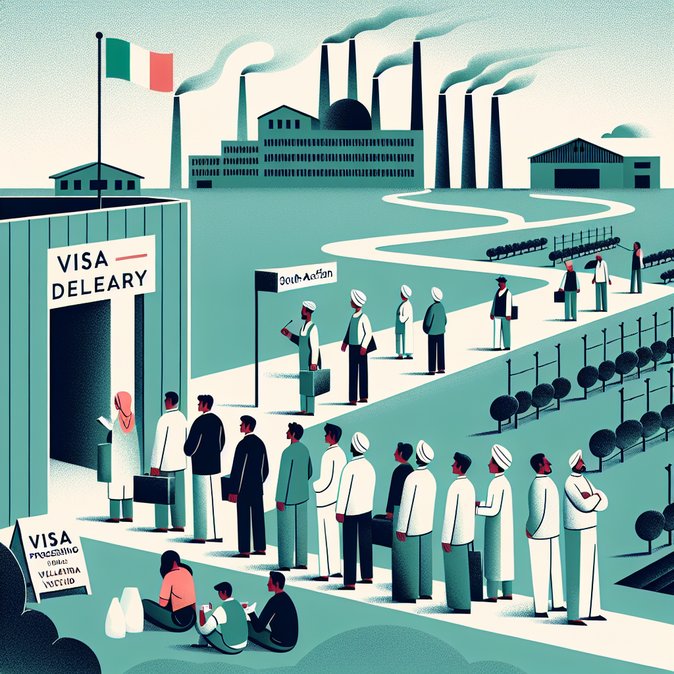
Italian police in Catania carried out arrest warrants at dawn on 17 November against three alleged members of a criminal network accused of human trafficking, illegal intermediation and severe labour exploitation. According to investigators, the trio organised the recruitment of migrants in North Africa, arranged their clandestine arrival by sea, and forced them into under-paid agricultural and construction jobs in eastern Sicily.
The operation, coordinated by the anti-mafia prosecutor’s office, follows months of wire-taps and surveillance that documented threats, debt-bondage and the confiscation of identity papers. Prosecutors say the organisation earned tens of thousands of euros each season by charging migrants up to €3 000 for the crossing and deducting further “fees” from wages once in Italy. Victims were housed in overcrowded rural dormitories without contracts or health coverage—a violation of Italy’s 2023 “caporalato” anti-exploitation law.
![Catania police dismantle trafficking ring exploiting migrant workers]()
For multinational companies that outsource parts of their supply chain in Sicily’s agrifood cluster, the arrests serve as a stark reminder to re-audit labour providers. Under the EU Due Diligence Directive and Italy’s Legislative Decree 231/2001, firms can be held liable for subcontractors that engage in trafficking or forced labour. Robust vendor screening, unannounced site visits and whistle-blower channels are increasingly seen as best practice.
The case also has immigration-policy implications. While the government increased legal work-visa quotas for 2026-28, enforcement agencies argue that slow-moving administrative channels still leave loopholes that criminal organisations exploit. Streamlining seasonal-worker permits and speeding up contract validation could reduce the underground demand the traffickers leveraged, officials told local media.
The operation, coordinated by the anti-mafia prosecutor’s office, follows months of wire-taps and surveillance that documented threats, debt-bondage and the confiscation of identity papers. Prosecutors say the organisation earned tens of thousands of euros each season by charging migrants up to €3 000 for the crossing and deducting further “fees” from wages once in Italy. Victims were housed in overcrowded rural dormitories without contracts or health coverage—a violation of Italy’s 2023 “caporalato” anti-exploitation law.

For multinational companies that outsource parts of their supply chain in Sicily’s agrifood cluster, the arrests serve as a stark reminder to re-audit labour providers. Under the EU Due Diligence Directive and Italy’s Legislative Decree 231/2001, firms can be held liable for subcontractors that engage in trafficking or forced labour. Robust vendor screening, unannounced site visits and whistle-blower channels are increasingly seen as best practice.
The case also has immigration-policy implications. While the government increased legal work-visa quotas for 2026-28, enforcement agencies argue that slow-moving administrative channels still leave loopholes that criminal organisations exploit. Streamlining seasonal-worker permits and speeding up contract validation could reduce the underground demand the traffickers leveraged, officials told local media.


